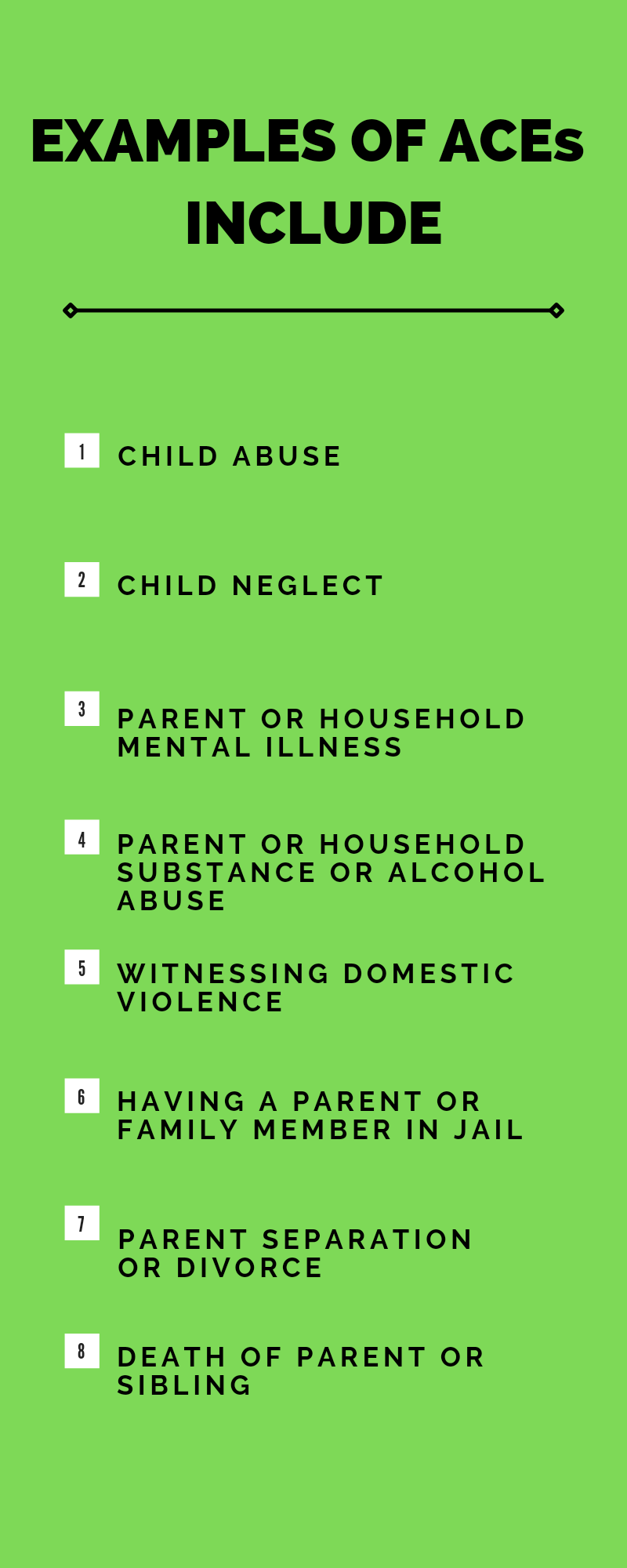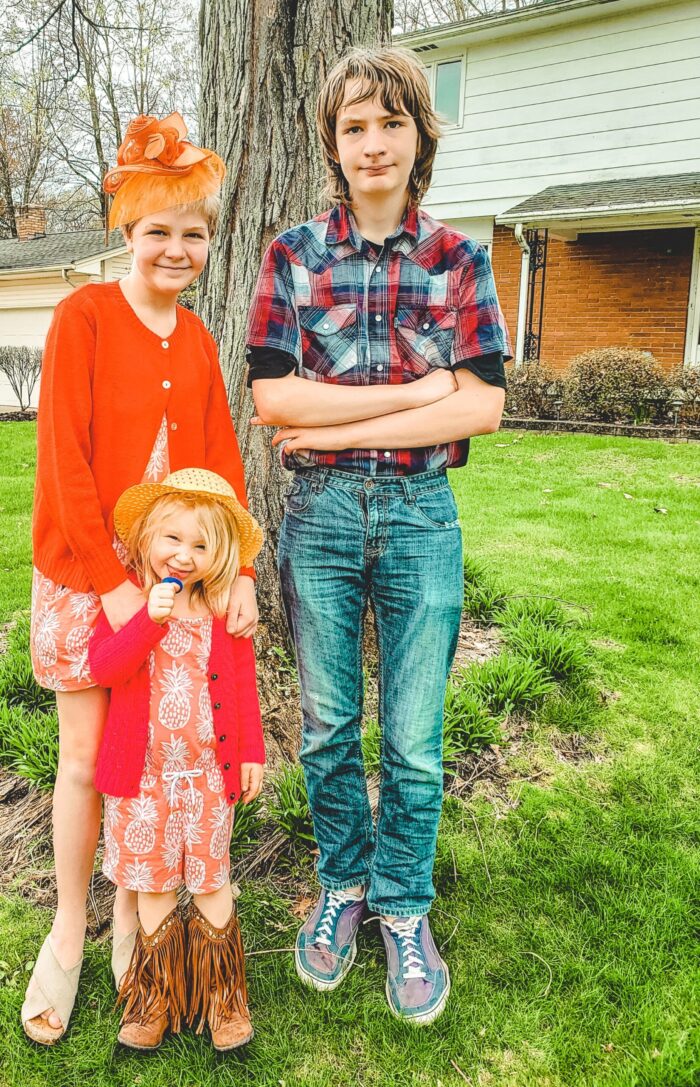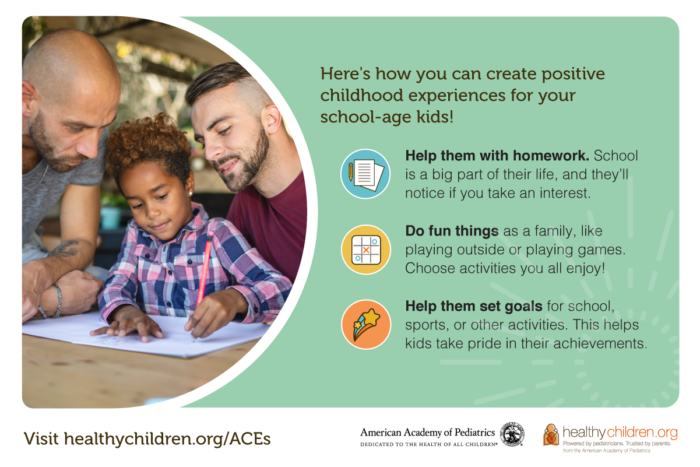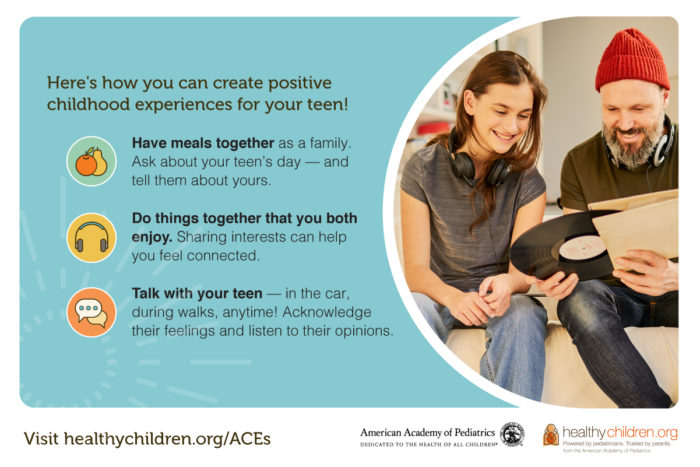As parents, we want to give our children the best childhood we can. We want to prepare them for adulthood and be a good support system for them, no matter what. For some of us, it means working through past trauma to do that. For others, it is finding support when our child experiences trauma to help them cope. Today, I want to share about ACEs (Adverse Childhood Experiences)—what they are as well as my personal story.
This post is made possible with support from the American Academy of Pediatrics through a cooperative agreement with the Centers for Disease Control and Prevention. All opinions are my own.
My Personal Story
I had a rough childhood. My mom tried to shield me from some of it, but sometimes that is kinda hard growing up in a small town. When I was five years old, my father was sent to prison. He spent most of my childhood and into adulthood there. It left a big impact on my childhood and still impacts my life in some respects.
Living in a small town, gossip gets around fast. Many people knew what happened to my dad, and some adults felt the need to tell their kids, making me a target of bullying. Some of my teachers were among those bullies, too. My mom tried to protect me the best she could… as in she didn’t tell me a lot of things about my dad until I was an adult. She advocated for me when I was being bullied at school and even put me in another school altogether for a while because the school wasn’t being helpful.
My mother had support through my adopted grandma next door, my godparents, and people in the church. They tried to help her give me as much of a normal childhood as one could have as a kid visiting their dad in prison several times a month. While I do carry some baggage from that, I know that it could have been much worse without having that support system.
Why Learning About ACEs Matters
Examples of ACEs
For those unfamiliar with what ACEs are, here are some examples:

How ACEs Affect Us
ACEs (Adverse Childhood Experiences) trigger the body’s stress systems, or “fight or flight” response. Our bodies are meant to deal with stress in short bursts. However, ACEs sometimes make it so that a child has to deal with stress much longer than the body is equipped to handle; this type of stress is called “toxic stress.” This can have long-term effects on a child’s health. Exposure to ACEs is linked to a higher risk of alcoholism, smoking, and drug abuse. It can also lead to depression, heart disease, liver disease, and STIs. A higher rate of teen pregnancy is also linked to exposure to ACEs, as is attempted suicide or death from suicide.
Preventing or Relieving Stress
Even if your child goes through something traumatic, all is not lost! Having supportive, nurturing adults in a child’s life help buffer the negative effects of trauma. Simply put, find three sources of support to help your child through tough times. This could be people or organizations that can help. Also, we can be those people for other families, too! Every child needs safe, stable, nurturing relationships and environments, sometimes abbreviated SSNREs. And positive childhood experiences, like having adults outside your family that you can trust (maybe adults who are part of your three), can help reduce the effects of ACEs.

How My Experience Translates into Wanting to Lessen the Impact of ACEs in My Own Children
In a perfect world, I would be able to shelter my children from everything. However, we do not live in that world. Because of my TBI relapse and the health issues that came after it, including some struggles with mental illness, I know that these experiences may have adverse effects on my children.
Some of the things I have seen in my own children
Just as I had to grow up a little quicker in some aspects because of my trauma, I noticed that my older two had to as well. My husband worked in the oil field during some of the time that I was going through everything. This made it so my older children ended up helping me out more with my youngest than I would have liked. Of course, this caused resentment. Our house was in chaos mode for a while. It has been a hard road to get things back to the way they were before all of this happened. Combined with the effects of living somewhat isolated this past year because of Covid, we still struggle sometimes.
Then there is the whole issue of how my kids freak out whenever I go to the doctor. It made this last pregnancy a bit of a struggle. As much as I wanted to wait to tell the kids I was pregnant, I had to tell them early on because they were concerned with how much I was going to the doctor at the beginning. (I had to go a lot for blood work because of my history of miscarriages.)

Moving Forward
The last thing I want to do is something that will leave my kids with emotional scars. I didn’t ask for any of this to happen, and neither did they. However, just because we are going through all of this doesn’t mean all is lost.
Instead, it means that I have to step up and make sure that I am taking care of myself—mentally and physically so that I can be the best mom I can be.
Currently, that includes therapy and may extend to couple’s therapy as well as family therapy to get the extra tools we need. It also means reaching out and finding our support system. We have people who support our kids, that give our kids care, and are there to help them emotionally. They also provide a safe space for my kids to talk. Just as I benefitted from as a child.
While I could not prevent what happened, I want to do all I can to make sure that my kids can move on and that I can, too.

The Wrap Up
Learning about ACEs (Adverse Childhood Experiences) is so important for parents. While we may not be able to prevent all potential childhood trauma, with proper support, we can prevent or lessen the impact these events bring. I encourage you to learn more and also think of three people or resources to remember for support!
I hope you found this helpful and if so, be sure to subscribe to my newsletter for more parenting support!